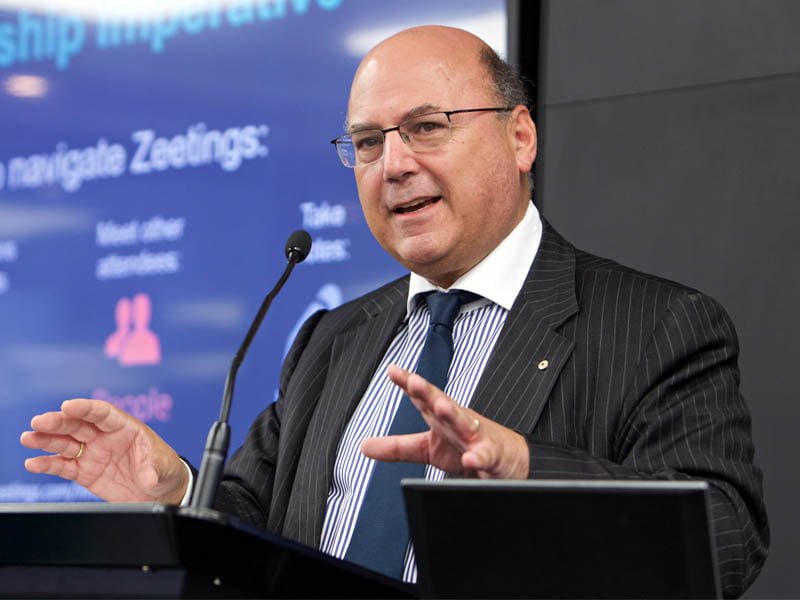Government is considering modifications to its new temporary skills visa regime in the wake of significant criticism from the commercial tech and innovation sector, and from the science and academic communities.
Industry, Innovation and Science Minister Arthur Sinodinos said he and Immigration Minister Peter Dutton had been hosting roundtables with the tech community and academic research sectors to better understand concerns, indicating that government may consider specific changes in the coming weeks.
But the tech sector may have a longer wait to find out what changes are in store for the R&D Tax Incentive, with Senator Sinodinos saying government won’t be rushed into responding to the Ferris, Finkel, Fraser review of the program. He said only that changes would be announced “sometime this year.”

The Immigration department announced sweeping changes to the 457 visa program last month. The new Temporary Skills Shortage visa scheme comes into effect from March 2018, significantly tightening the eligibility requirements, and wiping hundreds of job classifications from its eligibility lists.
The changes caught the tech industry by surprise, with the startup sector arguing that government should be making it easier to access global skills, not harder.
Similarly the academic sector said the inflexibility of the new scheme – especially around the shorter length of the new visas – would make it more difficult attract the global talent that cross-pollenizes Australian research thinking.
“We’re doing some roundtables on [the 457 issue] in terms of its impact on the technology sector,” Senator Sinodinos told InnovationAus.com. “I’ve been speaking to some people in the sector about it.”
“I want to do a bit more work on the techy part – and to make sure that we’re not throwing the baby out with the bathwater,” he said.
“And I think you’ll see that Peter Dutton [and the Immigration department] are doing some work in relation to the scientific and research part of it.”
The chief executive of startup advocates TechSydney Dean McEvoy said the group had held positive meetings with the Immigration department and with the portfolio’s junior minister Alex Hawke.
The group is encouraging tech companies that have had an employee’s 457 visa application cancelled as a result of the changes to provide a ‘business case’ to the department before the middle of June specifying the nature of that employee’s critical skills – the implication being that there may be room for case-by-case exemptions.
More specifically though, Mr McEvoy says the business cases may help shape the new ‘skills list’ of occupations eligible for the TSS scheme.
An ongoing frustration with the existing 457 visas was that skills and experience required by high-growth startups were not on the list, and not recognised in this country.
Mr McEvoy said the industry was frustrated that the Australian Computer Society, which has the ear of government on the skills list for technology occupations, does not understand the skills needs of tech-enabled high-growth startups.
Even under the old program, the ACS had choked the supply of critical talent by not understanding 21st century skills requirements for the tech and tech-enabled startup sector.
An experienced ‘growth hacker’ is near impossible to find in Australia, given the infancy of the startups here. But recruiting them from offshore has always been problematic because they have shoe-horned into immigration categories like ‘marketing’ which inadequately define the role.
StartupAus CEO Alex McCauley said the roundtables gave the impression that there may be some room to move in relation to tech skills and the new program.
“Both the immigration department and the industry department were alive to the concerns of the startup sector,” Mr McCauley said. “They had the right people in the room, and they do seem to be taking the approach that they don’t have everything completely worked out in this [new scheme] yet.”
Meanwhile Senator Sinodinos said the government would not be hurried on its deliberations over possible changes to the R&D Tax Incentive.
“What I have said all along is that I want a scheme that’s sustainable, that’s there for the long haul, and that’s appropriately targeted,” he said.
“I think it’s a good system that we’ve got. But like any system, it’s good to review it and to get the best out of it.”
The scheme, which accounts for about one-third of the government’s $9 billion-plus investment in research and development has in recent years ballooned.
“We want to make sure that growth is sustainable. Government every so often has to say ‘we have got more work to do on this, or this is an area that’s growing at an unsustainable [rate],” Senator Sinodinos said.
Mr McCauley said the number one concern of the group was to ensure the scheme remained accessible to the broad sweep of Australian startups investing in R&D work in Australia, and was still pushing for scheme to introduce quarterly payments to help with cash-flow for early-stage and fast growth companies.
Do you know more? Contact James Riley via Email.

